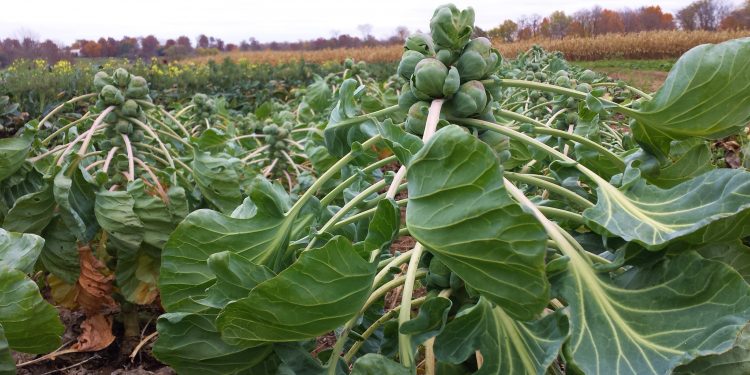AgResearch Scientists Transform Brussels Sprouts Using Kokumi Peptides
Farmers, agronomists, vegetable entrepreneurs, plant protection product managers, fertilizer producers, researchers, and food industry specialists are poised to benefit from a groundbreaking project led by AgResearch scientists in collaboration with the Australian Meat Processor Corporation. This initiative aims to revolutionize the flavor profile of Brussels sprouts, a vegetable often met with mixed consumer reactions due to its naturally bitter taste.
Dr. Raise Ahmad, alongside colleagues Jihan Kim and Scott Hutching, is spearheading efforts to enhance the palatability of Brussels sprouts by leveraging a flavor peptide extracted from beef offal. This peptide, known for its “Kokumi” effect, enriches sweet, salty, and umami tastes, transforming the bitterness of Brussels sprouts into a more appealing caramel-like flavor. This innovative approach not only adds value to what is typically a waste stream in meat processing but also significantly improves the culinary appeal of Brussels sprouts.
Dr. Ahmad elaborates that Kokumi peptides are small protein fragments that interact with calcium-sensing receptors on the tongue, inducing sensations of mouth fullness and a lingering aftertaste. Dr. Santanu Deb-Choudhury, another scientist involved in the project, highlights that Kokumi adds depth, taste, and richness to foods, making them more enjoyable. To ensure the effectiveness of these peptides, the team employs mass spectrometry and a receptor assay test developed by Ahmad.
Consumer trials conducted in Wellington, with development chef Dale Bowie, have yielded promising results. Participants reported enhanced flavors in dishes containing Kokumi and a reduced need for added salt, fat, and sugar. These findings underscore the potential for Kokumi to not only improve taste but also contribute to healthier eating habits by lowering reliance on less healthy flavor enhancers.
Additionally, the research delves into optimal cooking temperatures for steak, pinpointing the best aroma, taste, and texture at 58-62 °C. This aspect of the study further exemplifies the comprehensive approach taken by AgResearch in advancing food technology.
The potential for commercializing Kokumi is currently under discussion, with a focus on scaling production. Given that the natural production process from offal presents minimal food safety concerns, it stands as a favorable alternative to artificial flavor enhancers like MSG. This initiative is part of AgResearch’s broader efforts in food technology development, which include AI-driven flavor combination exploration and the analysis of freshness in food.
For farmers and producers, the introduction of Kokumi-enhanced Brussels sprouts could open new market opportunities and cater to a wider consumer base. Plant protection product managers and fertilizer producers can collaborate to ensure the quality and yield of these innovative crops. Researchers and scientists can continue to explore and refine these advancements, contributing to the evolving landscape of agricultural and food sciences.































